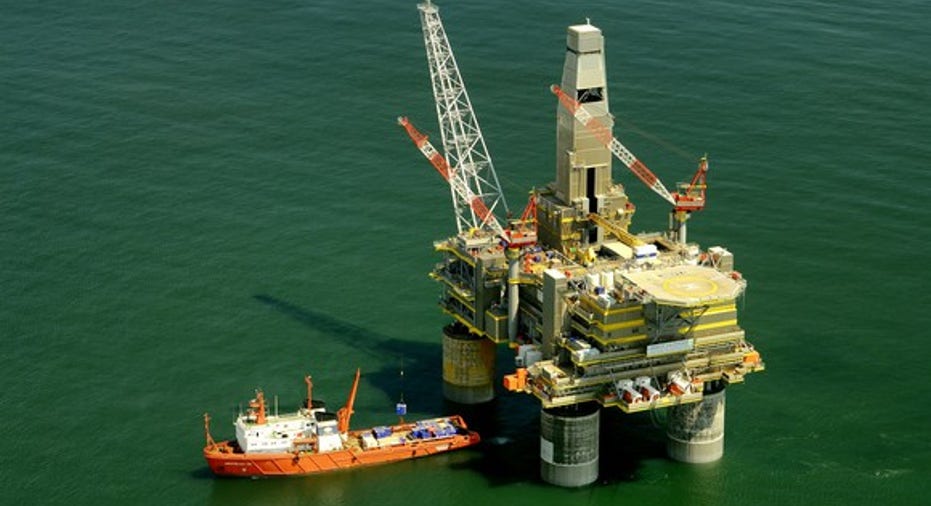Here's What Will Happen to Chevron If Venezuela Slides Into Chaos

Oil Rig Source:Pixabay.
Venezuela is no stranger to political chaos or supply disruptions. From December 2002 to early 2003, a worker's strike at the state-run oil giant PDVSAcut production in the country by almost 3 million barrels per day. The strike caused WTI to soar from $27 per barrel in November to $37 per barrel in February 2003.
Now, thirteen years later, low crude prices are threatening to cause supply production in the country again. Given that Venezuela is a major crude producer, and Chevron has operations in the country, let's analyze the potential for supply disruptions, and examine how Chevron is exposed to the country.
A parallel between current conditions and those in 2002
In 2002, many Venezuelanworkers went on strike because they were opposed to the political leader at the time, Hugo Chavez, and wanted change.In 2016, many Venezuelans want political change from the current President, Nicolas Maduro,because their economy is in shambles.
Due to the low crude prices, Venezuela's GDP contracted around 10% in 2015, inflation is over 180%, and many normal citizens can't afford many of life's basic necessities.
The situation is dire for businesses, too. Because the Venezuelangovernment doesn't have much money, the state-owned oil company hasn't paid foreign companies for a long period of time, causing some major service contractors to pull out. In the first quarter of 2016, Halliburton decided to curtail its activity in Venezuela due to the lack of prompt payments. In April 2016, Schlumberger also announced that it was trimming its activities in the country for the same reason.
Halliburton andSchlumbergerpulling out is bad news for Venezuela because production will be harder to maintain without their expertise. If production declines, Venezuela's state-run oil giant, PDVSA, will have less money to maintain its current production, and its production could decline even further. The negative cycle has the potential to feed on itself until things get much worse.
Potentialramifications
Chevron has significant operations inVenezuela through equity stakes in various companies including Petroboscan, Petroindependiente, and Petropiar. In 2015, the company's equity stakes produced a net average of 30,000 barrels of crude oil, 29,000 barrels of synthetic oil upgraded from heavy oil, and30 million cubic feet of natural gas per day in the country.That's about 64,300 BOE per day of production, or 2.4% of Chevron's total daily production of around 2.62 million BOE per day.
Given thatVenezuela produces around 2.6 million barrels per day,there is a lot of potential to disrupt supply. Similar geopolitical disturbances have caused crude production in other OPEC countries to decline sharply.Due to various reasons, a militant group, Niger Delta Avengers, has attacked infrastructure in Nigeria's main crude-producing area and caused production in the country to decline by 800,000 barrels per day to 1.4 million barrels per day, as a result.
If a political chaos erupts in Venezuela and PDVSA continues to see production declines,Chevron's share of the production could decline by a similar percentage and the company could lose a percentage or two of production in the worst case scenario.
If the worst case scenario occurs, however, crude prices would likely rise given how tight the market already is with the supply disruptions elsewhere andspare capacity near a multi-year low.The crude price rise would likely offset the production decline and maintain Chevron's cash flows. Steady cash flows and higher prices would improve the probability of a dividend raise.
The article Here's What Will Happen to Chevron If Venezuela Slides Into Chaos originally appeared on Fool.com.
TMFJay22 has no position in any stocks mentioned. The Motley Fool owns shares of and recommends Chevron. The Motley Fool owns shares of Halliburton. Try any of our Foolish newsletter services free for 30 days. We Fools may not all hold the same opinions, but we all believe that considering a diverse range of insights makes us better investors. The Motley Fool has a disclosure policy.
Copyright 1995 - 2016 The Motley Fool, LLC. All rights reserved. The Motley Fool has a disclosure policy.



















